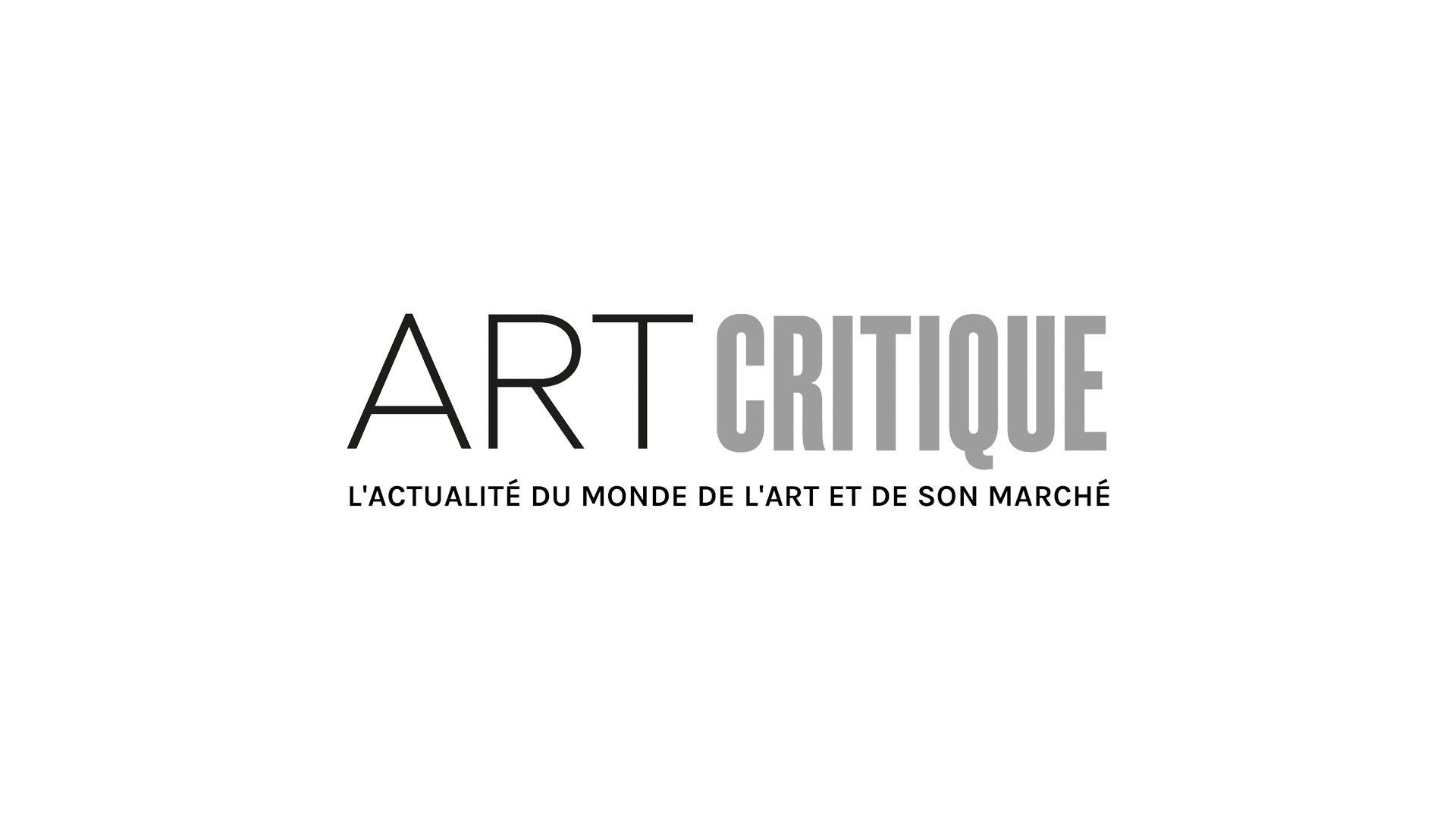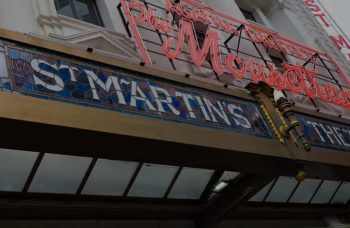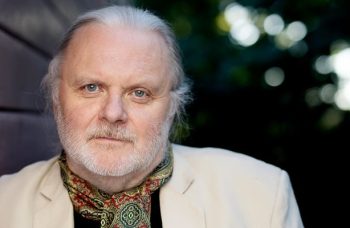Currently having its world premiere, Alice and The World We Live In at Centaur Theatre is a complicated affair centred around grief and memory. Written by Alexandria Haber and directed by Centaur Theatre’s artistic director Eda Holmes, Alice finds us encountering the titular Alice (Jane Wheeler) at the halfway point of a treacherous hiking trail along a mountain. She is paralyzed with fear at the thought of moving onward as well as moving back down the mountain. Alice stays in her position, serving as a static point for the world of her troubled mind and haunting memories to churn and swirl around, like rushing winds along this mountain trail. And as the very tangible presence of her deceased husband, Ever (Daniel Brochu), bounds about, refuting her worries and attempting to guide her, we watch to see what path she will take from this plateau.
What needs to first be given its due credit is the visual design of this play. From the moment you enter, you’re greeted by a massive, angular structure that serves as the mountain. The simple lighting plays beautifully off of its edges and has an otherworldly feeling to it while still very clearly indicating the environment we’re watching over; while the space (as well as the material for that matter) does not feel like it has any strong connection to the world of the classic Alice in Wonderland– despite the production’s messages asserting the contrary- it is beautiful, strange, and not without a few surprises up its sleeves.
There are directorial choices that mirror the literal and metaphorical scenario we’re being presented. Alice bounces back and forth between the dread of the moment she has stuck herself in and the lively happenings of the past she had with Ever. Wheeler’s delivery mirrors the two realms, quite flat when soaking in her current dread and spouting out memorized lists and emergency instructions, then rooted, varied, and full of life when in the realm of her past. While a clever tool to underline the situation, we’re with Alice in the present for so long before the pace changes to the past that the flatness can feel a bit dull or grating. But as the play builds, the choice feels more balanced, ethereal repetitions of phrases and lists occupying a space somewhere between the two primary worlds in a very cerebral way that punctuates some satisfyingly jerky changes.
Wheeler and Brochu play so well off of each other that the energy never feels stagnant. Wheeler is equal parts guarded and twisting, a visceral evoker of the pangs of grief, and Brochu is infallibly charming and jocular, and at times hauntingly astute. The two flow seamlessly into snapshots of their sweet early days and the ugly, ill-fated day of Ever’s death, veering about constantly and keeping your mind tuned into the patchwork. The most brilliant aspect stemming from the combination of this play, these actors, and this director is the variance in a key repeated scene. Repetition and the changing fluidity of memory are constant themes in this piece, but one scene from Alice’s past returns many a time, each instance having Wheeler deliver it in subtly and extremely different ways, giving a truly dreamy weight whenever it appears. The rhythm Haber has sewn into the text is constantly captivating.
Alice and The World We Live In is a passionate and important piece dealing with a very modern sense of grieving. While at times some of the dialogue and concepts discussed feel a bit cliché and predictable of grim two-handers, the way these ideas are dug into in the writing, as well as the expressionistic way we are handed them by this production, still give fresh perspectives and a realness that is always welcome. This play both comforts and challenges the way we deal with grief, and as tumultuous as the trip down that rabbit hole will always be, Alice and The World We Live In seeks to help us come out the other side for the better.





